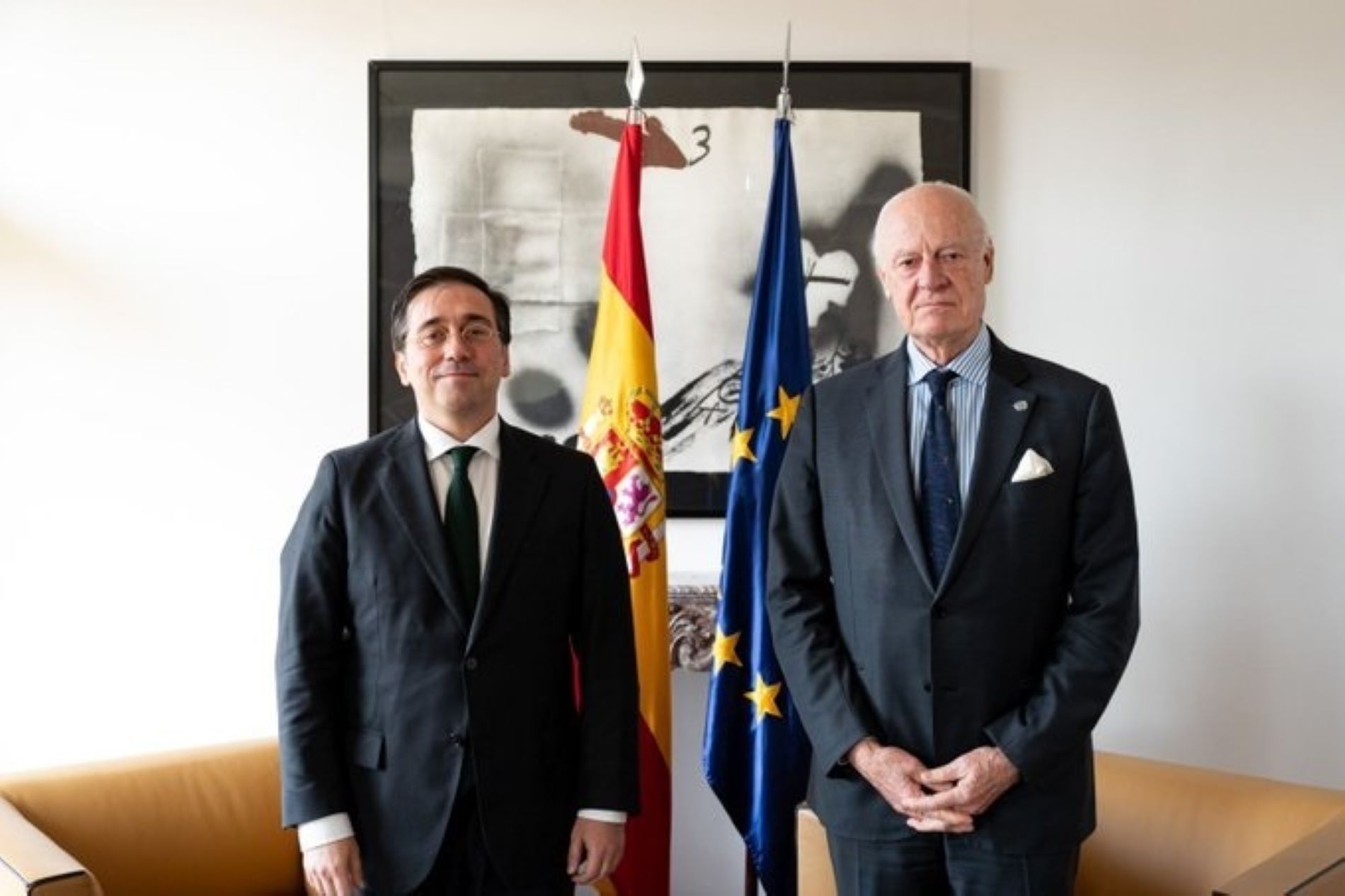A wake-up call from the EU to Spain. Three days after the Spanish government made a foreign policy about-turn on its North African neighbours which effectively abandoned the Sahrawi people's right to self-determination, the European Commission has reminded the Pedro Sánchez executive that the solution to the territorial dispute in its former colony of Western Sahara must involve the United Nations. EU foreign affairs spokesperson Nabila Massrali has stressed that the position of Brussels is that the status of this territory must be resolved "through a political process, in accordance with the resolutions of the United Nations". "The Commission reaffirms its support for the UN Secretary-General's efforts to continue the political process with a view to reaching a just, realistic, pragmatic, lasting and mutually acceptable political solution to the issue of Western Sahara," she remarked.
In a press conference held on Monday, Massrali added that "any solution must be based on commitments in accordance with the resolution of the UN Security Council". The latest such resolution was passed last October and called for "a realistic, viable, lasting solution, acceptable to the parties and based on agreement." That is, a solution that "provides for the free determination of the people of Western Sahara within the framework of the provisions in accordance with the principles and purposes of the Charter of the United Nations." This does not square with the Moroccan policy position - for Western Sahara to be a self-governing territory within Morocco - and thus Spain's effusive announcement on Friday of newfound support for Rabat signals an abandonment of the UN line.
Support for Spain's rapprochement with Morocco
However, the EU executive also stated that it took a positive view to the rapprochement of the Spanish state with Morocco, with the two countries agreeing on cooperation in key areas such as "migratory flows in the Mediterranean and the Atlantic". The EU spokesperson said that "on the position of Spain, the European Union welcomes the positive developments between the member states and Morocco in the bilateral relationship, which can only be beneficial for the implementation of the EU-Morocco Association Agreement as a whole," the European foreign affairs spokesperson said.
Last Friday, the Spanish prime minister, Pedro Sánchez, yielded to pressure from Rabat on the plan for the former Spanish colony. The Spanish executive called the change of policy a "new stage" in relations with Morocco. But not everyone greeted it with applause. Algeria, Spain's other major partner in North Africa and the source for most of its gas imports, has reprimanded the Spanish leadership for failing to inform it in advance and has called its ambassador in Madrid for consultations. Similarly, the junior partner in the Spanish coalition government, Unidas Podemos, has criticized the Socialists' decision, and much of the Spanish parliamentary opposition - from the PP to the parties of the left - have called for the president to appear before Congress to explain the issue. Moreover, the Sahrawi independence movement itself, the Polisario Front, which has mostly operated from Algerian exile in the four decades that Saharan territory has been occupied by Morocco, has warned that the change of direction "is a dangerous deviation".
Main image: The Spanish foreign minister, José Manuel Albares, with the special envoy of the United Nations secretariat-general for Western Sahara, Staffan de Mistura / Photo: Spanish foreign ministry

